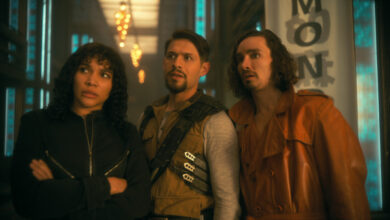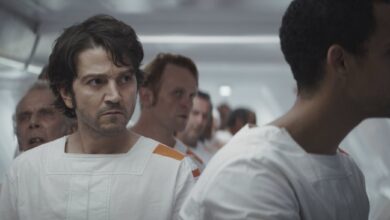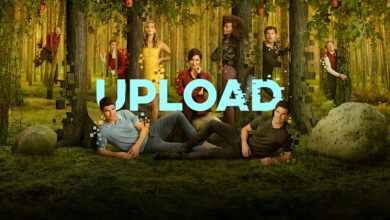Heartstopper Season 3: Release Date on Netflix? Plot and What We Know About Plot
It was October 2023 when Heartstopper Season 3 began filming. A few months after the release of the second season of the series inspired by Alice Oseman’s graphic novel, the actors of the teen drama were already back on the set of the third chapter of this Netflix LGBT series which seems to have won over teenagers but also adults. But what do we know so far about the third season of Heartstopper? Who is in the cast, where are we at with filming and when can we expect to see new episodes of the series on Netflix? Let’s find out together.
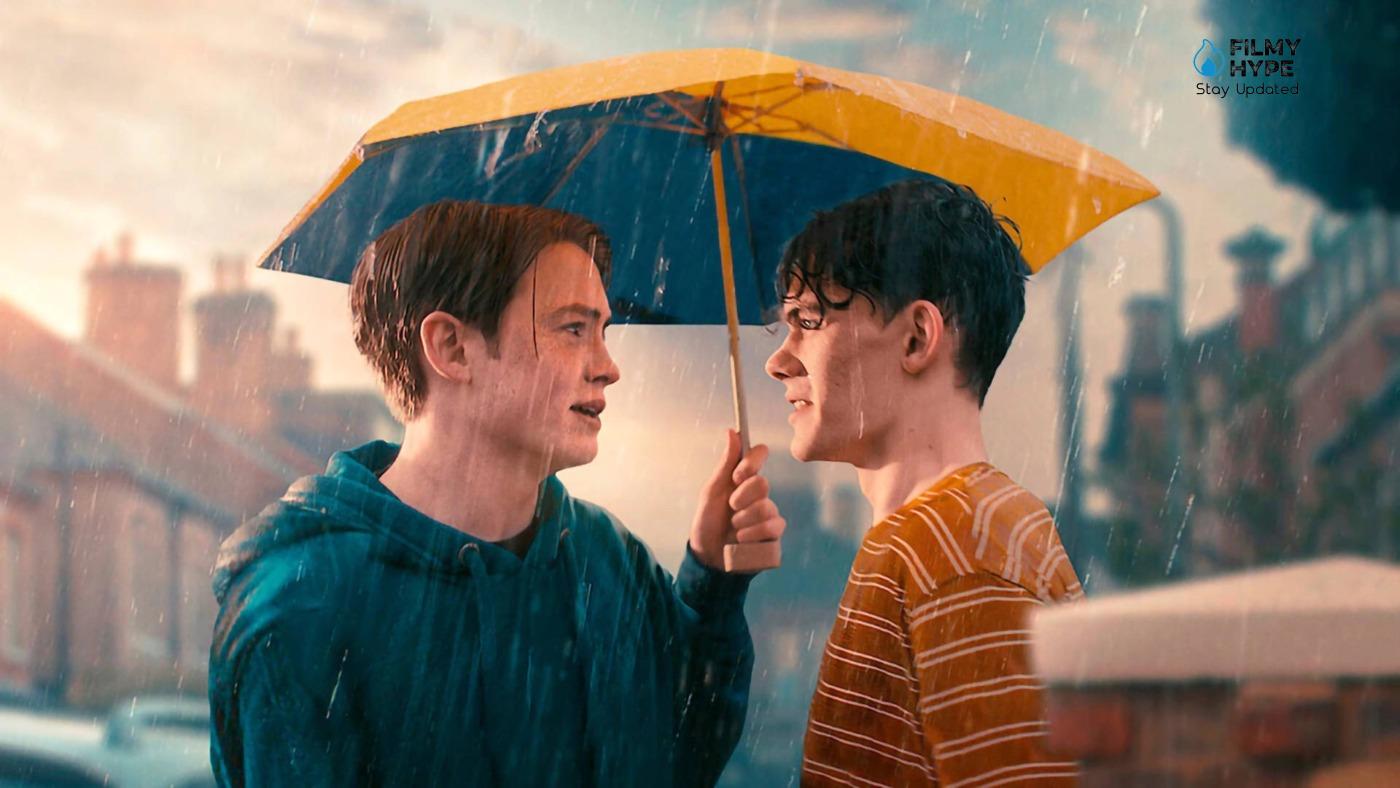
After the premiere of the new episodes, the only thing fans want to know is what’s in store for the third season of Heartstopper, because the teen series based on the work of Alice Oseman is one of the biggest successes of recent years and because of this its viewers can watch an entire season in one day, so there is no time to waste setting up and planning the next one. The truth is that for now not too many details have been revealed, but there is already good news, and it is the most important: the third season of the series is confirmed, so there will be no need to wait anxiously for an announcement from Netflix. If you don’t see anything these days, it’s because when the second one was announced, it had already been said that there would be another one.
What the Third Season of Heartstopper Will Be About?
At the moment there is no official synopsis, so we can only work (imaginatively) on a couple of possibilities of what could happen. Since the series ended with the long-awaited moment when – SPOILER alert – Charlie is about to tell Nick that she loves him (even though we don’t know if he sent the message or not), – END SPOILER – the season may focus on the couple’s next step, how they continue to navigate high school and how they prepare for college. Not only that but since Hearstopper Season 2 adapted Oseman’s third comic, it’s also possible that we’ll skip straight to the fourth, in which Charlie and Nick take on the world as new college students. The important thing is that, according to Oseman, the focus is on love.
When Will Heartstopper Season 3 Be Released?
According to rumors, filming is expected to begin this October, so episodes could arrive by the end of 2024. However, although this is a British production, it is unclear whether the Hollywood strikes could affect the project in any way, so we will have to wait for confirmation of the start of filming to estimate an approximate date. At least we can be sure that sooner or later Charlie and Nick will return to the platform. The rest doesn’t matter (much).
Who is in the Cast of Heartstopper Season 3?
The third season of Heartstopper will see the return of many familiar faces:
- Joe Locke as Charlie Spring
- Kit Connor as Nick Nelson
- William Gao as Tao Xu
- Yasmine Finney as Elle Argent
- Tobie Donovan as Isaac Henderson
- Cormac Hyde-Corrin as Harry Greene
- Rhea Norwood as Imogen Heaney
- Corinna Brown as Tara Jones
- Kizzy Edgell as Darcy Olsson
One of the biggest cast changes is Sebastian Croft who will not return in season three as Ben. Among the new entries, Hayley Atwell has just been confirmed in the role of Diane.
How Many Episodes Will Heartstopper Season 3 Have?
Heartstopper Season 3 will have 8 episodes.
When Does Heartstopper Season 3 Come Out on Netflix?
Heartstopper Season 3 could be released on Netflix as early as 2024, most likely towards the second half of the year.
Alice Oseman, The Creator Of “Heartstopper” Reveals What The End Of The Plot Will Be Like?
25 minutes. 25 minutes and several rules. To speak with the best-selling youth literature Alice Oseman, you must meet certain guidelines. Do not take screenshots, do not record, do not ask questions about certain topics, and interview her in English are some of the instructions before connecting via Zoom with the creator of the publishing phenomenon Heartstopper. Behind the sweetness, kindness, and tranquility that Oseman transmits from the United Kingdom are great milestones. For example, more than 500,000 copies of all his work were sold in Argentina and South America. And, also, his famous saga was adapted as a series on Netflix, generating furor.
The author of Solitario, Radio Silencio, and Nick y Charlie have not given interviews for more than two years and now reserve a whole day to speak to the world press. 25 minutes – which were a little more – containing countless questions. And she, willing, answers with the same tenderness with which she writes. “We could say that tenderness is my hallmark,” says Oseman in dialogue with Infobae Leamos. Last November was the global launch of the fifth installment of the famous saga. And the next volume? According to the author – without spoilers – “Nick and Charlie’s love story will have a happy ending” and she is in the middle of the creative process. The publisher estimates that the launch will be in 2025. And he continues: “My life is completely Heartstopper right now. I am focused on comics and also on TV. “I have no other space in my brain.”
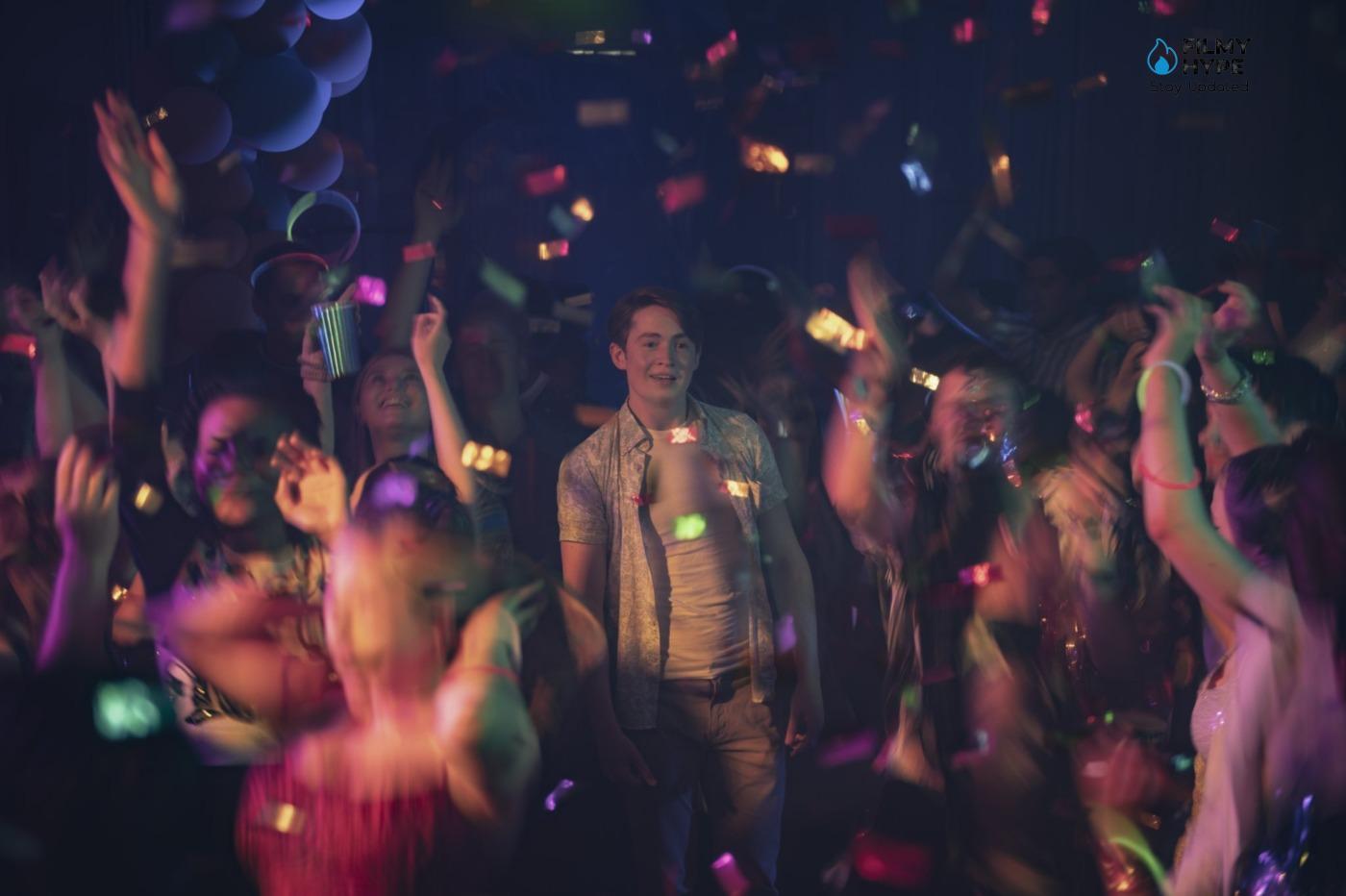
Oseman knows that her life is not the same since her overwhelming success: she wakes up and feels lucky to dedicate herself full-time to writing and drawing. “Not all authors can do that,” she says. But she also tells what the B side of fame, exposure, and social networks is: “The worst thing is that many people do not see you as a real human being, you are just a brand but there is a real human being”. 25 minutes to talk about the series that began life as a webcomic and quickly transcended the graphic novel format. Oseman confesses that the first volume of Heartstopper is his favorite because “there is a lot of tension and sensations that have not yet been expressed.” And he says about the end of the saga: “I know I’m going to cry when it’s over, it’s going to be sad and bittersweet”.
25 minutes to talk about his work, the one that explores with sensitivity and authenticity the complexities of young love, identity, and friendship. A kind of refuge and valuable representation for the LGBTQ+ community, diversity, and addressing issues such as mental health and bullying. 25 minutes in which we know that he will not come to the next Buenos Aires International Book Fair but that he is dying to visit Argentina. 25 minutes -and a little more- with a youth star having smiles and the feeling of talking with a friend.
― Tenderness is one of the key elements in the Heartstopper saga, why do you emphasize this, something uncommon in LGBTQ+ stories?
―We could say that tenderness is my hallmark, the small moments that a couple goes through, and that is why I write about the adolescent world because what young people feel is often underestimated. Tenderness is a huge aspect of Nick and Charlie’s relationship and how I write their relationship. I think that’s what I enjoy in the romances I read and see on television. They are those small moments between a couple where they are supporting each other, expressing their love, or before they meet. That’s all I love to write.
― What is the importance of tenderness in today’s world?
―It’s a great question. I would like to feel comfort, security, and love. I think it’s something that almost everyone is looking for in their lives, in a friendship or a family relationship. Only those feelings of security and calm are important. Yes, the world can be very hard and we have to endure those moments and hold on to those special feelings.
―Queer love stories historically had tragic endings to justify and evade censorship. Will Heartstopper have a happy ending?
-Yes, it will have a happy ending. It’s not a spoiler, I think everyone knows that, to me, a happy ending is just knowing that the characters are going to be okay. Maybe there are more tribulations and problems, things you will face in the future that could be difficult. But no matter what they’re going to go through, they’re probably going to be okay.
― What is a Happy Ending for New Generations of Readers?
―A little realism. That’s a happy ending for me.
― You also explore friendship and its importance, such as that of a romance. It is a powerful message. Was that decision intentional?
―The importance of friendship is fundamental. Society tells us to get married and all the things we should do, but we don’t talk enough about friendships. We don’t see many books or movies about that or the loss of a friendship. That has been present in all of my works because for many teenagers, romance is not part of their growing up experience and friendships are the most important relationships in their lives. I have been very realistic and I would like to give friendship the strength that a romance has in a story. It doesn’t happen as much in Heartstopper, because love is the fundamental thing there. But with other characters, I wanted to show that friendships can be as important as romances.
―How do you manage to talk about sexuality and queerness, specifically, being a controversial topic these days? How to tell it to a young audience?
―Being queer is natural, it is normal and it is an intrinsic part of my writing and my stories. I feel like it’s natural for me. And when I write for younger people I don’t put them down. I carry the characters as if I were writing about people my age. I’m not trying to appeal to young people in any way. I wear the characters I love and care about, thinking about their personalities and how they react in certain situations.
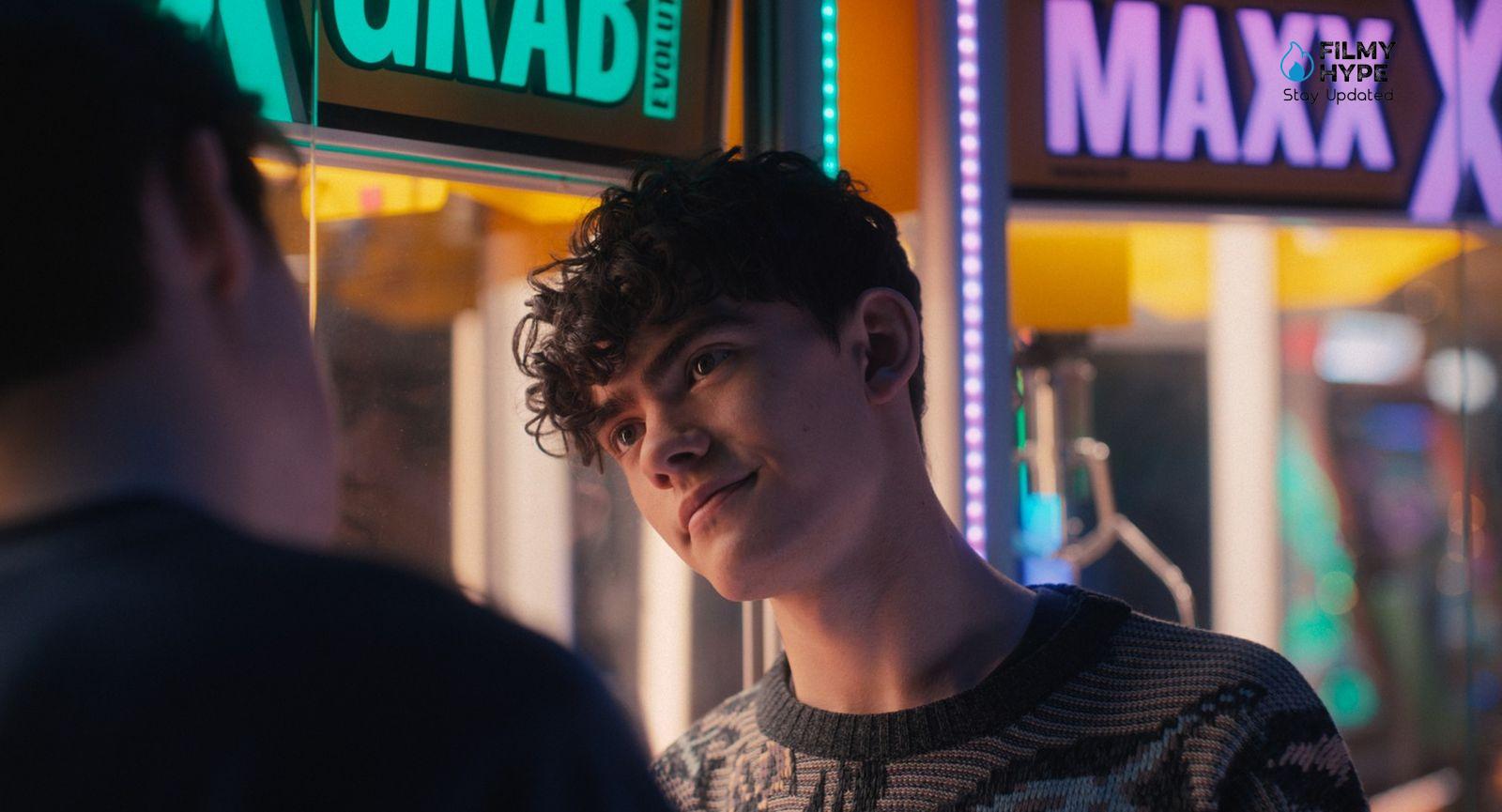
― Were you ever afraid of being censored for delving into these topics?
“I wouldn’t say I was afraid.” It’s always very sad to hear about it when it happens and it’s very frustrating. It disgusts me. And I get angry at all the teenagers who have been deprived of access to queer books. But that doesn’t stop me from making the stories I want to make.
― Nick’s character is discovering his sexuality, and how he can be confused on that path. Books are a very important mode of representation and Heartstopper volume 5 became canon about asexuality and aromanticism, how are we evolving to understand what these concepts are?
―I think things are improving, although there is still a long way to go. Most people still don’t know what asexuality and aromanticism are, but I think we are taking positive steps. The most important thing we need is for there to be more characters on television and in movies because they reach so many people, which is one of the best ways to help people understand those experiences. That was one of the reasons I introduced the character of Isaac to TV. I wanted a lot of people to hear the words “asexual” and “aromantic” and learn a little more about what it is like for people. It was very important for me.
― The Heartstopper saga allows young generations to experience queer love in a safe and prejudice-free way. What were the books, movies, or series that fulfilled that role for you? What were your “Heartstoppers” in your youth?
―Honestly, there weren’t many queer love stories, especially on television at the time. But the book that marked me was Will Grayson, Will Grayson by John Green and David Levithan, which is a good book and I love those two authors. In terms of television, it was probably Glee, which was very popular when I was in my teens, and that was the first time I saw queer characters have big stories on TV.
― Did you write to find a voice and an identity?
―I love writing, expressing, and exploring topics and problems that are close to me and what I feel. But also, since I’m more secure about my identity, it’s easier for me to write about it, which is partly why I introduced an asexual character in volume 5.
― In that volume, you make reference to insecurity regarding sexual relations and intimate encounters. Does this topic exceed youth and become universal?
―It is common for individuals to experience insecurities regarding sex. He wanted to write about it in the fifth volume. My goal was to show how Nick and Charlie prepare to take that big step of being together for the first time and what that entails, particularly for Charlie, due to her mental health problems, and the journey she had to go through. I wanted to address this new aspect of their relationship and how they both approach an unknown situation.
― What were the comments you received after publishing Heartstopper, both from your youngest and adult readers?
―I’ve had all kinds of responses. I often receive comments from young people that books help them discover who they are and have helped them through a difficult times in their lives. It’s really beautiful to listen to. But I also hear that from the older ones. Sometimes parents and teachers who have found that Heartstopper has helped them understand a young person in their life a little better. My family was always very happy and excited for me.
― What advice would you give to LGBTQI+ young people who are not as fortunate to have a story like Charlie and Nick’s?
―My advice would be that friendships can be so special and powerful. Sometimes people have the idea that having this romance is the most special and incredible experience you can imagine, but the truth is, so are friendships. So, my advice is to encourage looking for those friendships and treating them with as much love and energy as you could in a romantic story.
Who is Alice Oseman?
Born in Kent, United Kingdom, in 1994.
♦ She is an illustrator, writer, and screenwriter.
♦ It has been praised by specialized critics and has received various awards such as the Inky Awards and United By Pop Awards.
♦ Among his works are Solitario, Radio Silencio, I Was Born For This, and the Heartstopper saga, which became a best-seller and was adapted into a series by Netflix.



